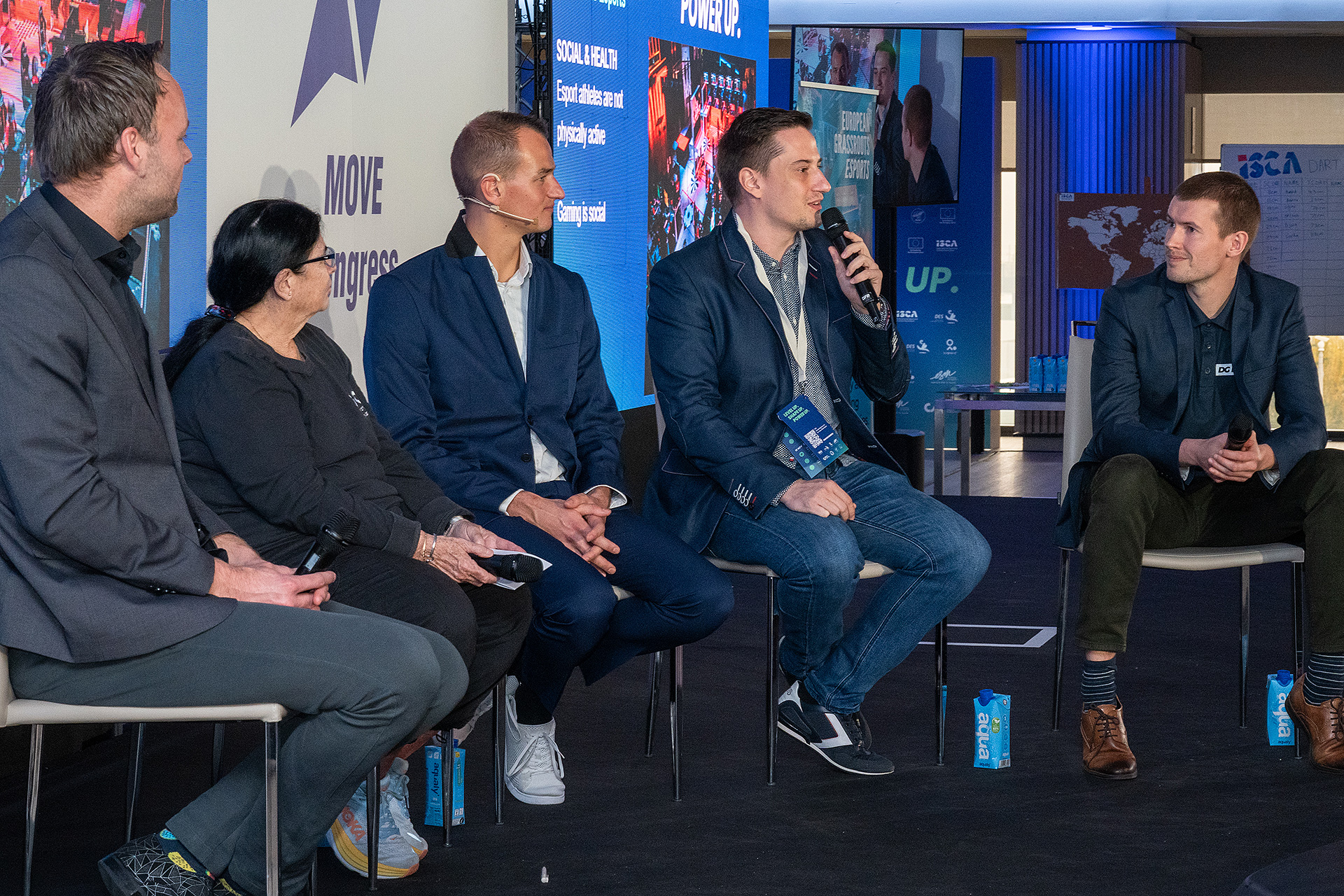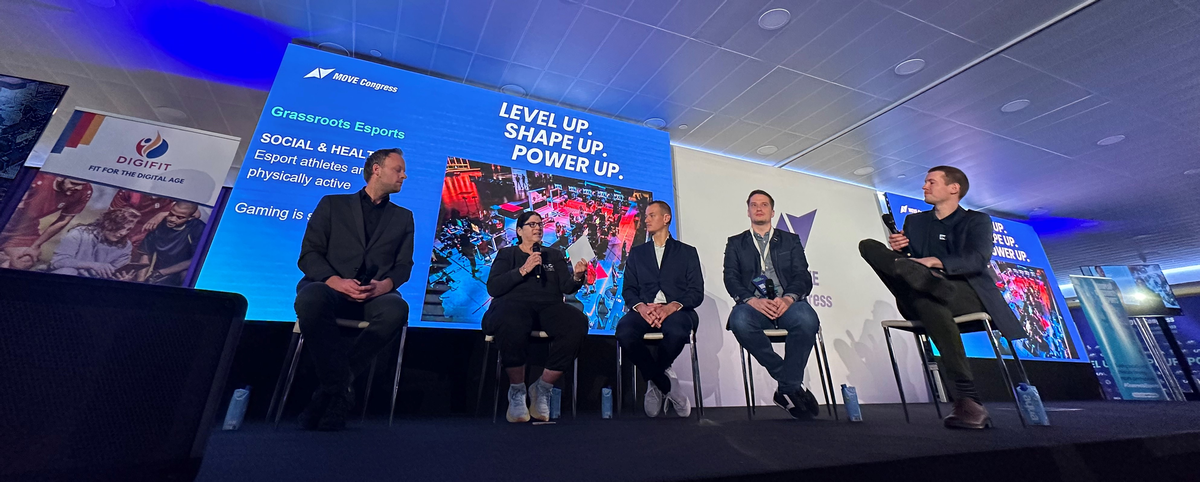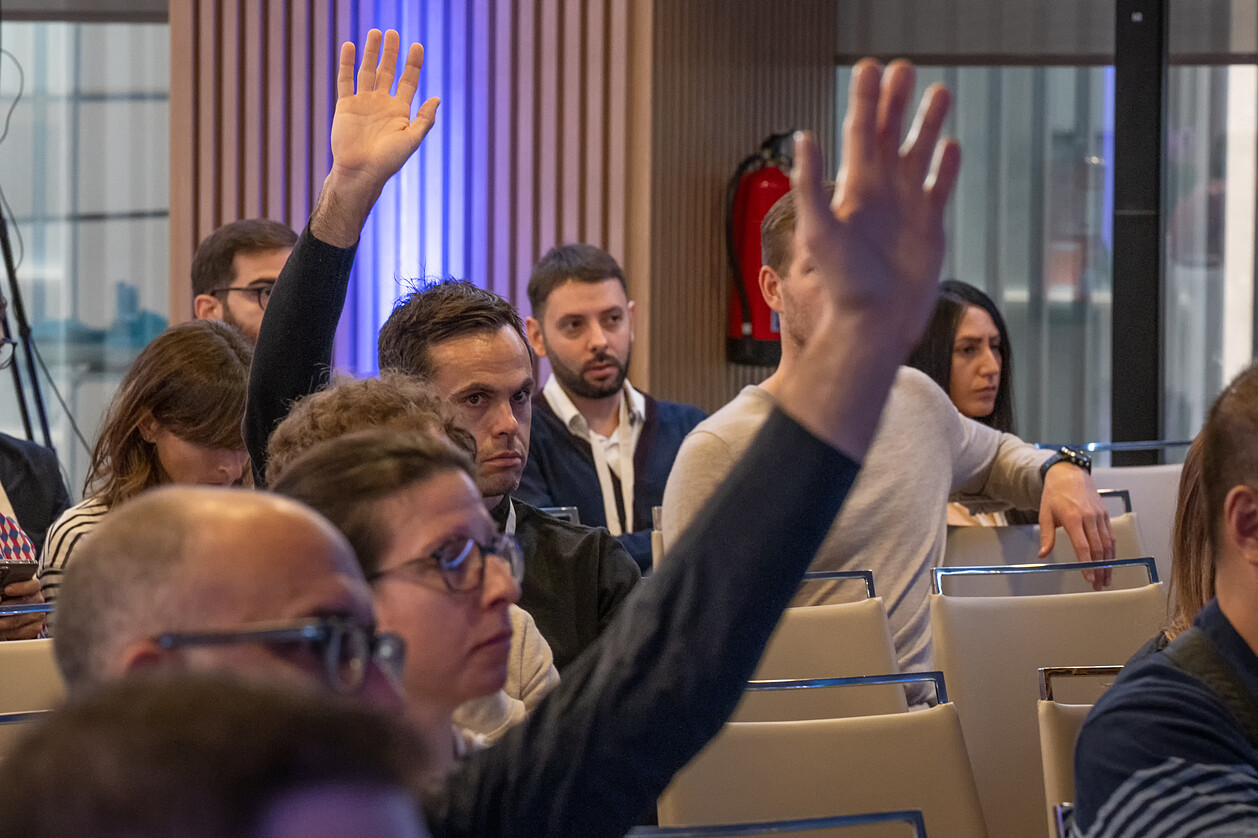Adding more fuel to the fire!
Will Roberts (above), the COO of Youth Sport Trust in the UK, joined in on the conversation with the proposed topic of responsibility of publishers/game developers. He said he was lucky to have met the CEO of the British Esport Association, the IOC and executives from Rockstar Games on a number of occasions, challenging them to shut down their games every 30-minutes. During these breaks, he suggested that children should do at least three minutes of physical activity, because their abilities to think and respond in the game will decay over 30 minutes of being sedentary. He was told that this is not going to happen, as these games are commercial, and by shutting them down games it would decrease the time that generates revenue.
In the UK, esports is not recognised as a sport for a number of reasons. But Roberts pointed out that at Youth Sport Trust, they survey tens of thousands of kids in the UK on an annual basis on their attitudes, and the real problem presents itself in a shape that gaming is hijacking the term sport.
“The commercialised industry of gaming has chosen to use the brand of sport because it’s ubiquitous and powerful around the world for commercial benefit. Sport is physically active, and gaming isn’t. (…) The commercial industry has cynically taken the term ‘sport’ purely for commercial advantage and if anything that is competitive can be in the Olympics, bring on the Spelling Bee in the Olympics Games.”
“In a country, where less than half of young people are physically active, for nearly a fifth of young people to think a sedentary activity is physically active demonstrates the need of an industry to take greater social responsibility. And for that matter the use of the term ‘sport’ is damaging,” Roberts added.
Jayne Greenberg responded to the raised challenges: “If we use the difference between gaming and esports and we use exa-gaming and active gaming and getting the kids back in physical education daily, then we see that being physically fit executes and innovates the executive functioning of the brain which enhances the esport participation. So, taking a holistic approach to being physically fit, performing at your highest level in esports as opposed to sedentary behaviour in gaming for five hours a day, then you could see the connection between sport, physical activity and high-performance level in esports due to the executive functioning of the brain due to physical fitness.”
Relieving the tension – or the other side of the coin?
Mads Didriksen chipped in to ease and cool the heated discussion. “On one hand, there is a huge problem of obesity and physical inactivity in general, but we also see that esports can have a positive impact on the lives of kids who would never go to a football club, who have special needs, or maybe were diagnosed with chronic diseases. The social component of esports, the bright side, also needs to be mentioned. There is a huge benefit for all using esports as a powerful tool to drive social inclusion and improve mental health of kids who lack the sense of belonging. And yes, game developers and publishers need to show social responsibility, which we don’t really see that much.”
Education needs gaming or gaming needs education?
Esports and gaming have evolved far beyond mere entertainment, emerging as a prominent avenue for educational development, and in this sense there is more and more social responsibility that publishers represent. While often criticised for their perceived distractions, these platforms offer a multifaceted landscape that fosters a range of cognitive, social, and emotional skills, thus contributing significantly to the educational sphere.
As mentioned before, one of the most striking educational facets of esports and gaming lies in their capacity to enhance cognitive abilities such as critical thinking, problem-solving, and strategic planning. Players engage in complex decision-making processes, honing their analytical skills as they navigate through challenges within the game environment. Strategy games or puzzles induce kids to think several steps ahead, improving their foresight and adaptability—skills highly applicable in various academic and real-world scenarios especially in the 21st century.
Summarising the educational aspects, Jayne Greenberg expressed that by having esports in schools (speaking predominantly about primary and secondary school teachers and coaches) provides an opportunity to educate kids on time spent at the computer, time to take a break to do something more physically active, to involve parents by educating them on esports/gaming. By educating, we can turn the page for the next generation of gamers.
To close the panel, Matthijs Vink expressed how much he appreciates that the MOVE Congress provided the opportunity and a safe space for all sides to speak up and raise their concerns about the pros and cons of esports. It is a great place to create opinions, even if they are conflicting opinions, he said.
Visit ISCA’s European Grassroots Esports webpage – this panel debate was part of this EU-funded project
https://esports.isca.org/

